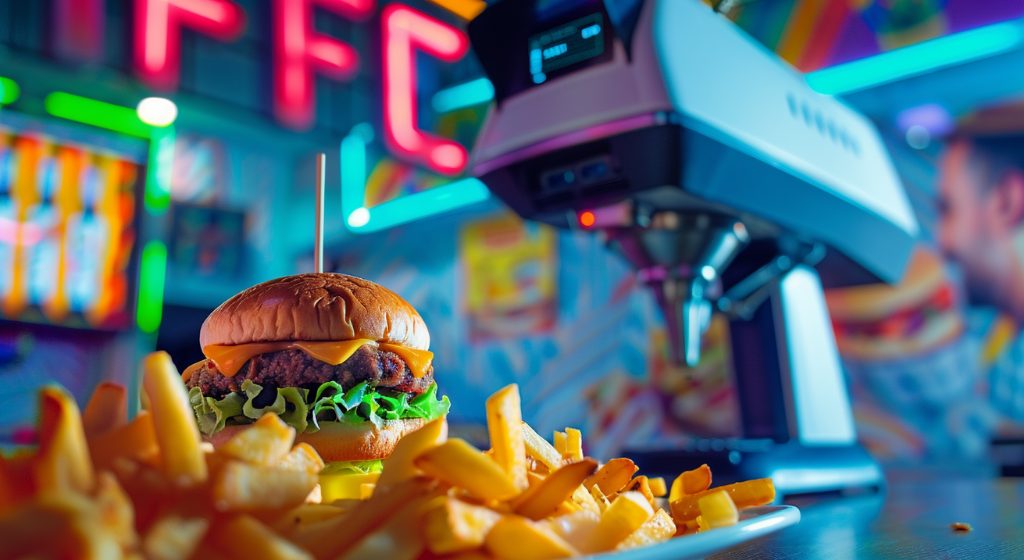
Fast-food restaurants are implementing new surveillance systems to ‘coach’ workers and customers towards more predictable and automated behaviors, fundamentally altering human interaction by replacing traditional decision-making processes with AI-driven protocols. (Source: Image by RR)
Big Brother’s Burger: Surveillance Seeps into Fast Food Restaurants
As fast food and vending machine companies incorporate advanced technology into their operations, the line between consumer service and surveillance is increasingly blurred. Tech companies have traditionally led in consumer data collection, but now, entities like Invenda are revolutionizing retail by using facial recognition and data analytics to understand customer demographics and behaviors, even when customers are just passing by.
According to a story in fastcompany.com, this expansion of technology is not confined to functionality; it also significantly impacts consumer privacy, as seen when University of Waterloo students accidentally uncovered that vending machines were analyzing customers without consent.
In the United States, the implementation of these technologies is poised to escalate following Invenda’s successful $19 million seed funding round. The potential deployment of these data-collecting machines in sensitive areas such as hospitals and government offices raises significant legal concerns, particularly around confidentiality laws. The privacy trade-off becomes even more pronounced in food deserts, where residents may have no choice but to exchange their personal information for accessibility to fast food and vending services, highlighting a stark invasion of privacy under the guise of convenience.
Fast food outlets are currently exploring various surveillance systems to streamline operations and manipulate consumer behavior. For instance, companies like Hoptix are implementing systems that monitor and analyze employee-customer interactions to enhance service performance and drive sales. These systems not only scrutinize every word and action of the employees but also inadvertently train customers to interact in specific, predictable ways. This shift toward regimented interactions is further supported by AI technologies that reduce human roles in customer service, such as AI-driven drive-thrus and automated cooking systems being tested by major chains like Wendy’s and Taco Bell.
The trend towards integrating AI in fast food is altering the fundamental nature of customer service, making both employees and customers part of a controlled, optimized transaction process. This not only diminishes the human aspect of service but also raises ethical concerns about the extent of data collection and the autonomy of both workers and consumers. As AI continues to replace human decision-making in fast food, the industry risks transforming a traditionally interactive experience into a transaction defined by surveillance and minimal human engagement. This paradigm shift not only challenges the essence of customer service but also raises broader societal concerns regarding privacy, consent, and the role of AI in public spaces.
read more at fastcompany.com







Leave A Comment